Suchergebnisse
IEA DHC Annex XIII Project 02: MEMPHIS 2.0 - Advanced algorithm for spatial identification, evaluation of temporal availability and economic assessment of waste heat sources and their local representation
The identification and integration of waste heat sources is a key measure towards the decarbonisation district heating networks (DHN). Aim of MEMPHIS 2 is to develop an improved algorithm for identification of different current and future waste heat sources; including time relations of the heat emitted and techno-economic details as well as the further development of the online waste heat explorer.
IEA Bioenergy
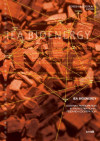
Austrian Participation in an international Research Cooperation
4/2000
Herausgeber: BMVIT
Englisch, 6 Seiten
Downloads zur Publikation
IEA EBC Annex 66: Newsletter No. 1 October 2014

Herausgeber: IEA EBC Annex 66
Englisch, 9 Seiten
Downloads zur Publikation
Workshop: Torrefaction of biomass
17. January 2014
Messecenter GrazMesseplatz 1, Graz, AT
IEA Bioenergy Task 32 organises in cooperation with IEA Bioenergy Task 40 and the EU sector project the workshop "Torrefaction of biomass", which will take place on the 17th of January 2014 in Graz, Austria and will be part of the 4th Central European Biomass Conference.
Prospects for coal and clean coal technologies in Poland (Mills, 01-2007)

Englisch
Photovoltaics - technology for tomorrow
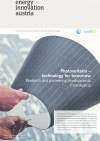
Research and pioneering developments
from Austria
energy innovation austria
2/2013
Herausgeber: BMVIT
Englisch, 8 Seiten
Downloads zur Publikation
Newsletter Vol. 26/#2/December 2014

Herausgeber: Paul Derham, odbtbioenergy
Englisch, 8 Seiten
Downloads zur Publikation
Working Party on End-Use Technologies (EUWP)
The International Energy Agency (IEA) Working Party on Energy End-Use Technologies, often referred to as End-Use Working Party (EUWP), has been in the advisory council for the Committee on Energy Research and Technology (CERT) in the area of end-use energy technologies since 1981. It also functions as reference for questions on end-use energy within the IEA Secretariat.
POSTPONED: 2nd International Conference on Negative CO2 Emissions
12. - 15. May 2020
Chalmers University of Technology, Gothenburg (SE)
PLEASE NOTE: Due to the outbreak of Covid-19 the conference is going to be postponed by one year, to May 18-21, 2021.
The Fuel Cell Industry Review 2015

Prof. David Hart, Franz Lehner, Robert Rose, Jonathan Lewis
Herausgeber: E4tech
Englisch, 52 Seiten
Energy Technology Initiatives 2013
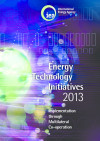
Implementation through Multilateral Co-operation
Herausgeber: IEA - International Energy Agency
Englisch, 114 Seiten
Downloads zur Publikation
Power projects using methane from coal mines (Sloss, 08-2006)

Englisch
Slides: Country Report Austria (2014)
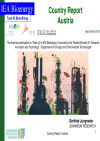
Gerfried Jungmeier
Herausgeber: IEA Bioenergie Task 42
Englisch, 41 Seiten
Downloads zur Publikation
RD&D on coal use in Australia and the COAL21 action plan (Henderson/Mills/Topper, 12-2005)

Englisch
ENARD Annex I Information sub-Task
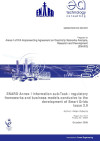
regulatory frameworks and business models conducive to the development of Smart Grids
Aidan Roberts
Englisch, 51 Seiten
Downloads zur Publikation
Solar Heating And Cooling in Austria (Faninger, 2009)

Status Report 2009 on Research, Development and Market Deployment of Solar Thermal Technologies in Austria. Presented to the IEA Solar Heating and Cooling Programme in July 2009
IEA EGRD Workshop - Future Energy Market Designs: Research and Innovation Needs
22. - 23. October 2018
Project Management Jülich, Zimmerstraße 26-27, 10969 Berlin, DE
An event organised under the auspices of the Experts’ Group on R&D Priority Setting and Evaluation (EGRD).
IEA-SHC Task 65: Solar Cooling for the Sunbelt Regions
Without measures, cooling demand will triple by 2050. The aim of Task 65 is to adapt existing technologies to the boundary conditions of the sunbelt, to find suitable system concepts, to evaluate them and to disseminate the advantages. In addition to system adaptations, the Austrian focus is on life cycle cost-benefit analysis and the further development of existing assessment tools.
